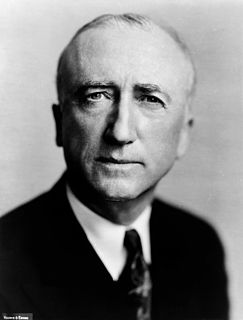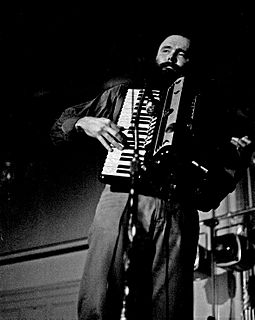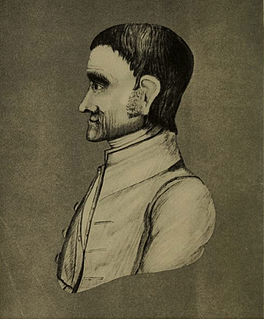A Quote by Janet Fitch
But I knew one more thing. That people w ho denied who they were or where they had been were in the greatest danger.
Related Quotes
My mother and my father had very, very strong Scots accents. We were Australian, and in those days when I was young, I spoke with a much more of an Australian accent than I have now. However I knew that if I went to England to become an actor, which I was determined to, I knew that I had to get rid of the Australian accent. We were colonials, we were Down Under somewhere, we were those little people Over There. But I was determined to become an Englishman. So I did.
Elizabeth, having rather expected to affront him, was amazed at his gallantry; and Darcy had never been so bewitched by any woman as he was by her. He really believed, that were it not for the inferiority of her connections, he should be in some danger of falling in love, and were it not for his considerable skill in the deadly arts, that he should be in danger of being bested by hers--for never had he seen a lady more gifted in the ways of vanquishing the undead.
When I was in high school in the early 1970s, we knew we were running out of oil; we knew that easy sources were being capped; we knew that diversifying would be much better; we knew that there were terrible dictators and horrible governments that we were enriching who hated us. We knew all that and we did really nothing.
He knew that we gave constant lip service to the dictates of safety and howled like Christians condemned to the arena if any compromise were made of it. He knew we were seekers after ease, suspicious, egotistic, and stubborn to a fault. He also knew that none of us would have continued our careers unless we had always been, and still were, helpless before this opportunity to take a chance.
These boys, now, were living as we'd been living then, they were growing up with a rush and their heads bumped abruptly against the low ceiling of their actual possibilities. They were filled with rage. All they really knew were two darknesses, the darkness of their lives, which were now closing in on them, and the darkness of the movies, which had blinded them to that other darkness, and in which they now, vindictively, dreamed, at once more together than they were at any other time, and more alone.
There were nights when he took a deal more rum and water than his head could carry; and then he would sometimes sit and sing his wicked old wild sea-songs, minding nobody... Often I have heard the house shaking with Yo-ho-ho and a bottle and rum, all the neighbours joining in for dear life with the fear of death upon them and each singing louder than the other to avoid remark. Fiften men on the dead man's chest, Yo-ho-ho and a bottle of rum! Drink and the devil have done for the rest. Yo-ho-ho and a bottle of rum!
It had long been true, and prisoners knew this better than anyone, that the poorer you were the more likely you were to end up in jail. This was not just because the poor committed more crimes. In fact, they did. The rich did not have to commit crimes to get what they wanted; the laws were on their side. But when the rich did commit crimes, they often were not prosecuted, and if they were they could get out on bail, hire clever lawyers, get better treatment from judges. Somehow, the jails ended up full of poor black people.
One of the first speaking roles I had was in a film called 'Svengali', with Peter O'Toole and Elizabeth Ashley. I was a waiter, and I had about three lines. And I was ready! I had been around people like that, and I knew they were just actors. All the work I had done, it was all there, and I felt like I knew all the mechanics.
Veronika had noticed that a lot of people she knew would talk about the horros in other people's lives as if they were genuinely concerned to help them, but the truth was that they took pleasure in the suffering of others, because that made them believe they were happy and that life had been generous with them



































